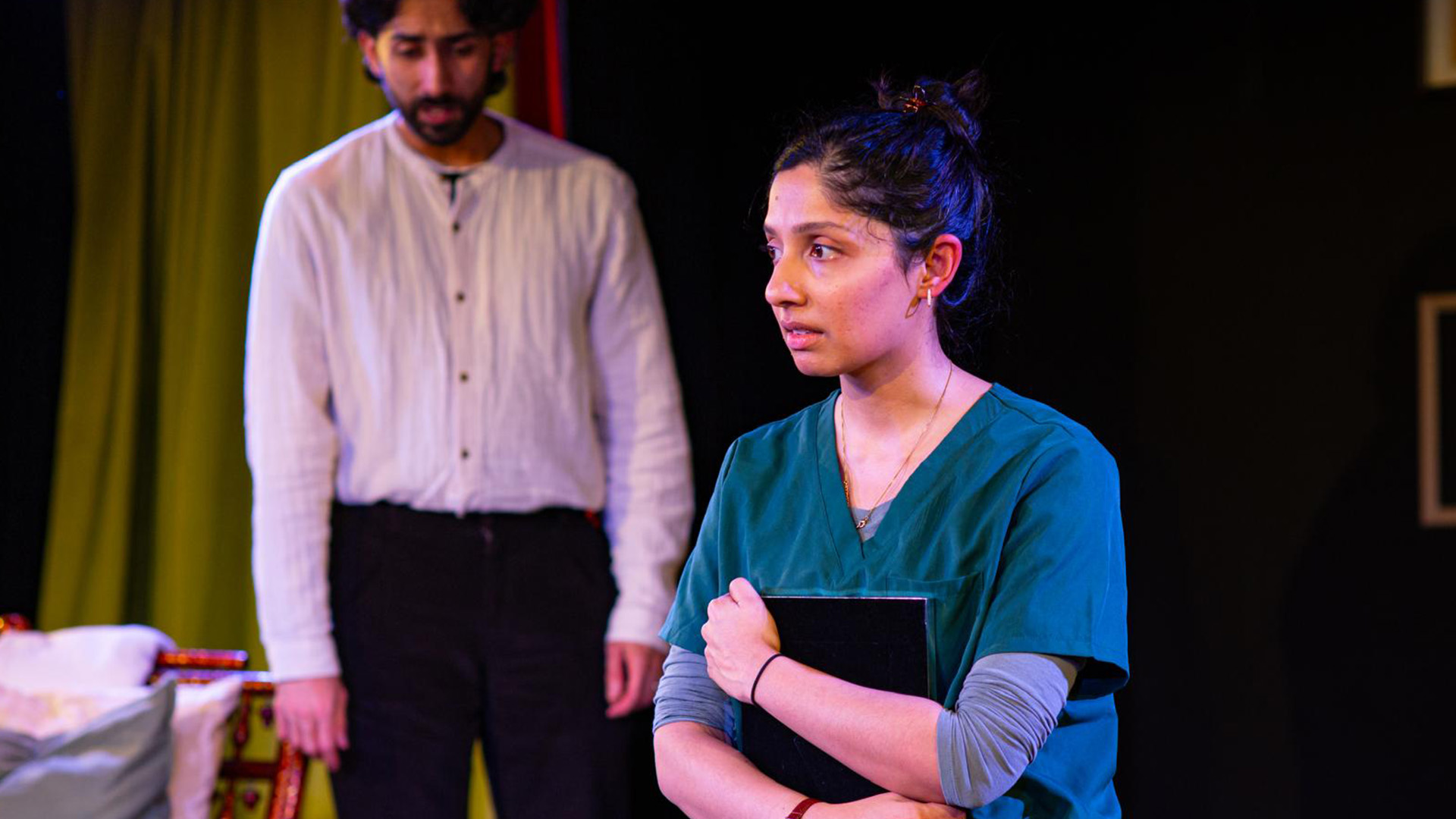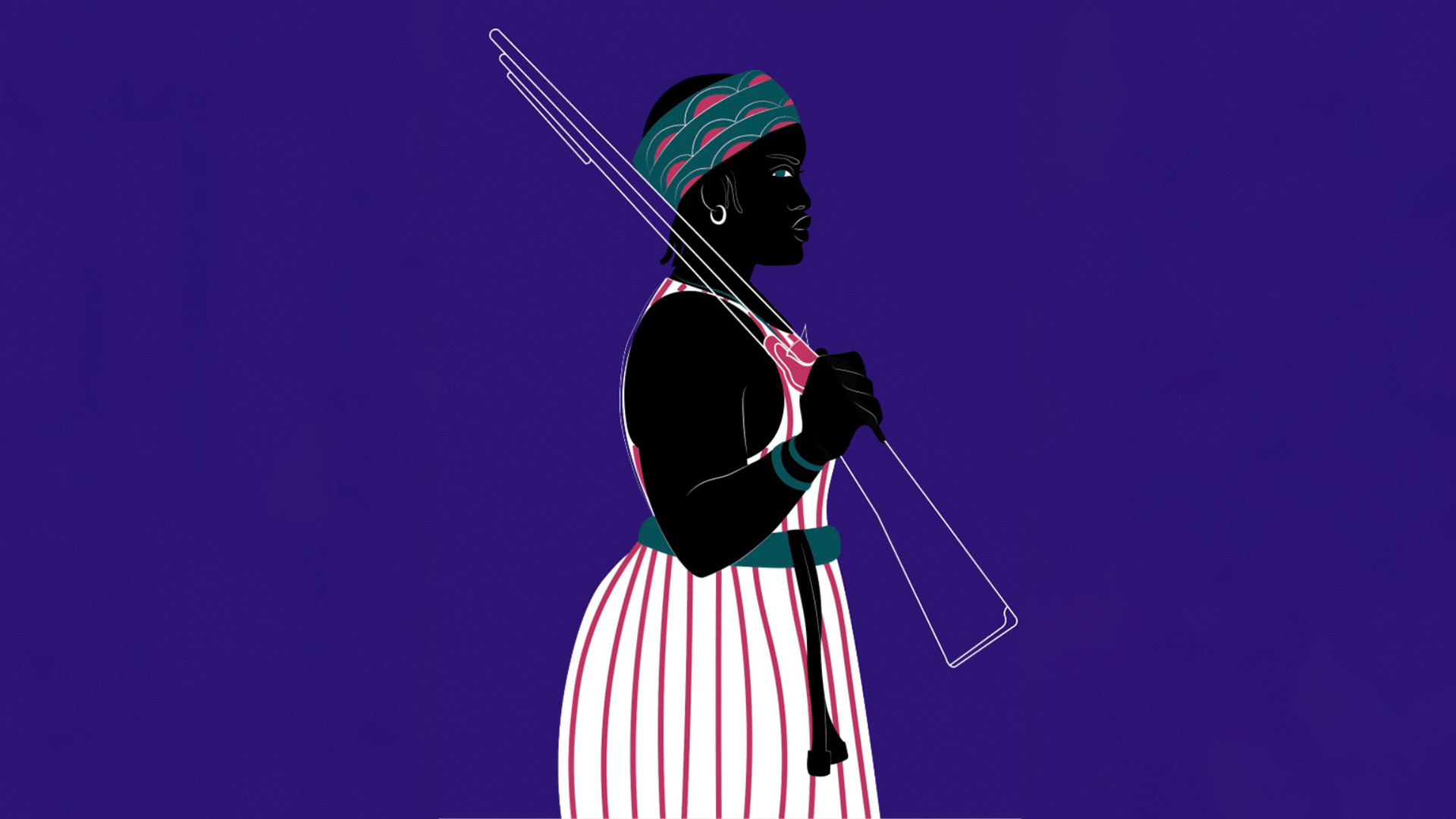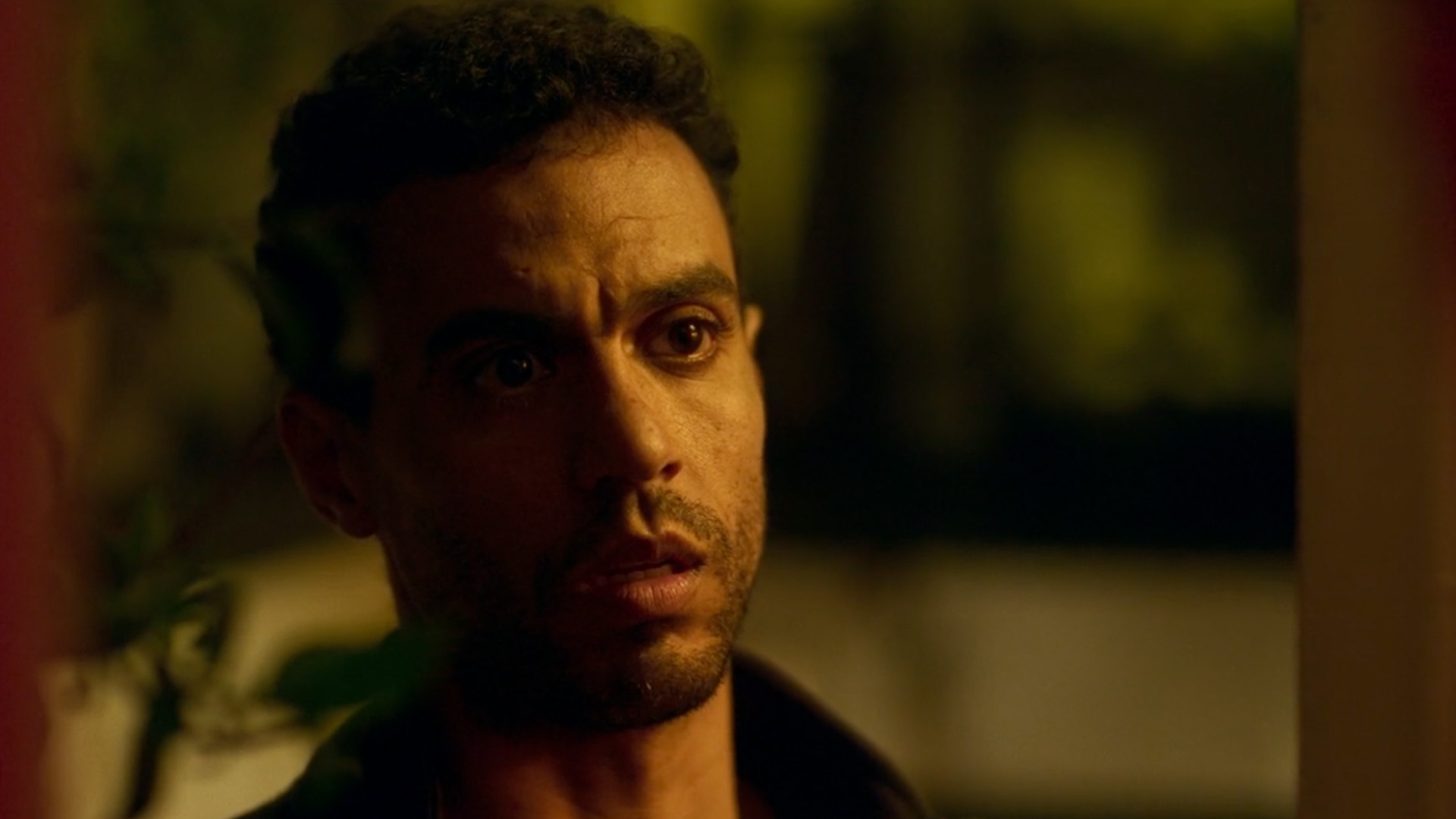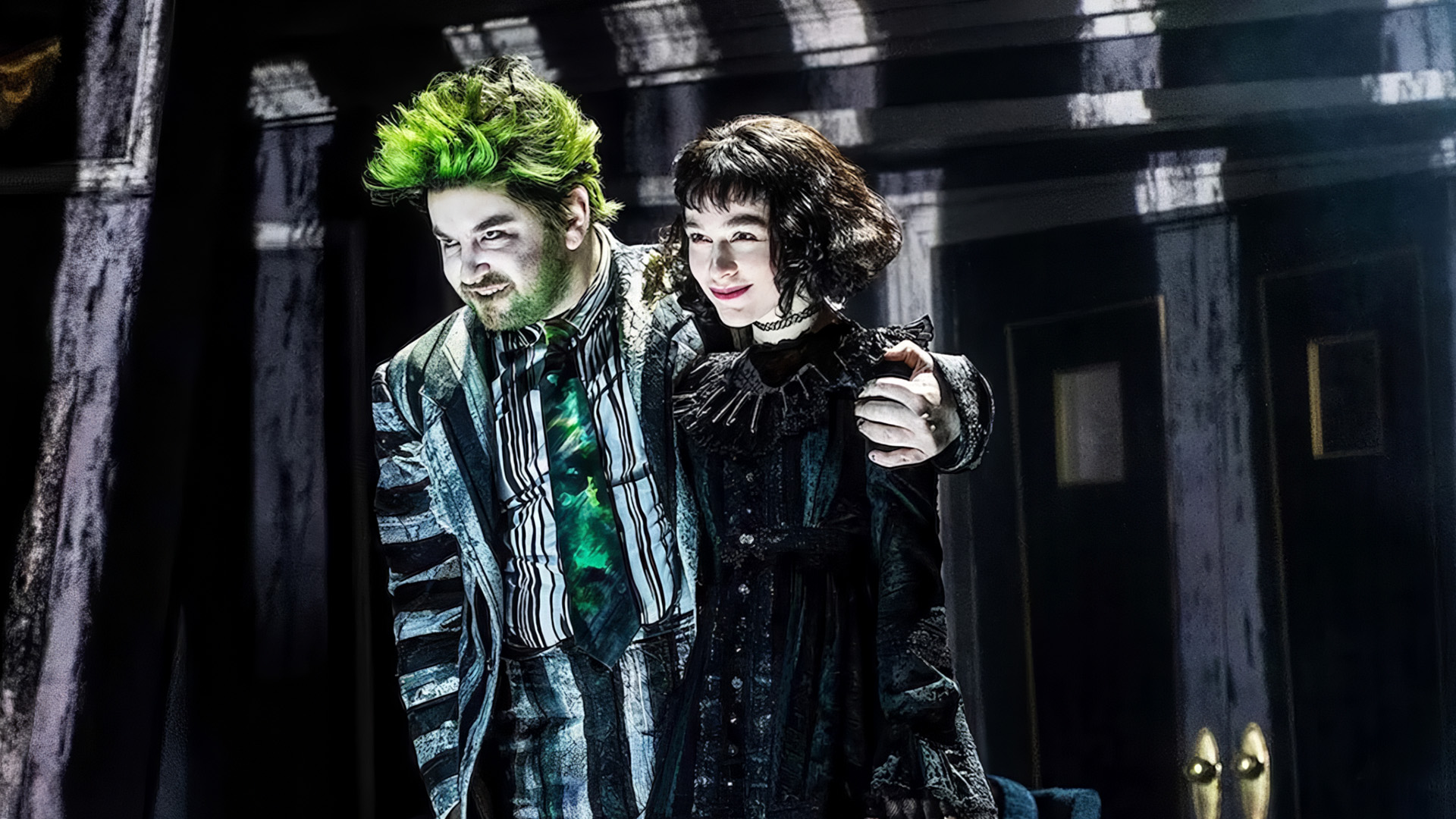Inside The Watch: A Quiet Interview on Queer Time and Tenderness
A gentle conversation with the makers of The Watch, a play that invites us to slow down, soften, and feel the weight of time in queer love.
Inside The Watch: A Quiet Interview on Queer Time and Tenderness

Writer Isabella Waldron and director Merle Wheldon talk about queer longing, sleeplessness, and the quiet power of The Watch.
Some plays shout. The Watch hums. Set to premiere at The Glitch in Waterloo, a compact in-the-round theatre space known for its stripped-back intimacy, this quiet two-hander follows Hannah, an insomniac caught in loops of thought, and Zoe, a clockmaker who seems to move at her own tempo. What unfolds is part love story, part soft unraveling of how time, queerness, and closeness can shift the way we move through the world.
Writer Isabella Waldron and director Merle Wheldon have crafted something that feels both specific and spacious. We spoke ahead of opening night about softness, trust, and why not every queer story has to be loud.

Isabella Waldron is a playwright whose work explores queer and intergenerational relationships with a quiet kind of precision. A semi-finalist for the O’Neill National Playwrights Conference and the Papatango Prize, her previous plays include The Ugly Duckling (Nottingham Playhouse), how to build a wax figure, and Things I Never Told The Stars. She often writes about home, time, and the soft complications of human connection.

Merle Wheldon is a theatre director known for her interest in broken relationships, intimate storytelling, and bold new writing. She is the co-artistic director of Bomb Factory Theatre and the 2025 recipient of the John Fernald Award. Her past credits include Do Crustaceans Feel Pain, Chekhov’s Dildo, and Filling The Void. She’s worked on both fringe and West End stages, but always gravitates toward work that feels emotionally charged and deeply personal.
What drew you to directing The Watch, and what felt unique about Isabella’s script?
MERLE: “I first met Isabella when I directed a short extract of The Watch for a Bomb Factory Theatre new writing showcase a few years ago. I was instantly drawn to her writing – beautiful, delicate, and gentle, yet also witty, layered, and wonderfully weird. Even in its early stages, the play was brimming with possibility, and I leapt at the chance to direct the full-length version.”
Isabella, what first sparked the idea for the play?
ISABELLA: “I read something about pre-industrial sleep patterns and was struck with the idea that something we take for granted – this idea that our bodies are designed to sleep 8 hours through the night – might not have always been true. That tied up with me for other themes of sexuality and capitalism and all that – things we take to be the norm now, but that might just be these human ideas we stick to.”
The play has a very fluid tone — almost like memory. How did you both approach that formally?
MERLE: “This play is a dream to direct – formally and structurally it’s rich with opportunity. Hannah’s direct address creates a real intimacy with the audience; she confides in us and we walk alongside her. The actors have helped shape the world enormously. We discovered the language and rhythm of the play feels almost like a dance. Finding ways to transition seamlessly but meaningfully between internal monologue and present-moment action has been one of our biggest joys.”
ISABELLA: “I tend to write my way into a play – hear the voices of these characters as they bubble up and explore them from there.”
Tell us more about how Hannah and Zoe come to life on stage.
MERLE: “We worked closely on the text and the psychology of each character: their contradictions, fears, desires. That informed how they communicate, miscommunicate, and ultimately, connect. Their intimacy, confusion, friendship, and longing unfold gradually and truthfully. It’s been a tender and exploratory process that’s allowed something very real to emerge and I think many people will see parts of themselves in their relationship.”
The Glitch is an in-the-round space. How did that affect staging?
MERLE: “I’ve never directed in the round before, and I was excited by the intimacy the space offers. Of course, the space has its quirks (including two large pillars in the room!). But that’s part of the thrill – discovering creative solutions that serve the story and don’t diminish from the heart of the play. With no bells and whistles, we return to my favourite fundamentals: dialogue, language, rhythm. I’m incredibly lucky to have such a thoughtful, generous and innovative creative team around me. The design choices are purposeful, cohesive and meaningful, and built to honour the text.”
And how did you build the environment in rehearsals?
MERLE: “Calm, care, and clarity are key. We’ve prioritised a professional and gentle rehearsal environment where everyone feels respected and heard. I’m grateful to Ciana and Kate – both of whom have brought not only their talent but a real openness to the process. Creating space for trust, boundaries and safety is always the foundation, especially when working with intimacy.”
The Watch centres on a relationship between two women. What drew you to that specifically, Isabella?
ISABELLA: “My life, my communities.”

How do you think The Watch speaks to the current queer theatre landscape?
MERLE: “I recently stumbled across an article in The Stage titled, ‘Is there less lesbian representation in theatre than ever before?’ – a question that highlights the ongoing shortage of lesbian and queer women’s stories on UK stages, especially those that aren’t centred around trauma. The Watch is a quiet, romantic story between two women navigating desire, identity, and belonging. Hannah has grown up without the freedom to explore who she is, while Zoe has – and that dynamic is complex and powerful. I’m grateful to Isabella for trusting me with her play that offers space for this kind of representation, and to be collaborating with a cast and creative team who bring their own experiences of queerness to the process with such openness, insight and care.”
What would you both like to see more of in queer storytelling today?
ISABELLA: “Yeah, I think we’re seeing more queer stories, but what I really would love to see is more narrative plentitude – the chance for stories that show not just queer joy but also queer people making mistakes, being assholes, etc. just like straight characters have been allowed to do on stage for years. There’s a great section in Carmen Maria Machado’s In the Dream House about queer villains that is worth a read!”
MERLE: “A wider range of stories that reflect the diversity and nuance of queer experience – especially those centring queer women. These narratives remain underrepresented, and there’s a particular need for work that explores joy, complexity, and everyday intimacy.”
Is there a moment in the play that still feels close to you, Isabella?
ISABELLA: “Hmm… I think the moment in the end where Hannah actually slows down and relaxes into being with Zoe. That part feels close to me still.”
And what do you hope audiences walk away with, Merle?
MERLE: “I hope it stays with them – that they leave feeling quietly moved. We’re surrounded by big, issue-led work, much of it vital, but there’s also a place for stories that explore intimacy, softness, and human connection. The Watch is a romantic, reflective piece, and I hope it offers a reminder that meaningful storytelling doesn’t always have to be loud to be powerful.”
The Watch runs from 28 May to 9 June 2025 at The Glitch, 134 Lower Marsh, Waterloo, London.
Tickets start from £8.50 and are available at theglitch.london.

Get weekly updates
.png)
Join Our Newsletter
Get a weekly selection of curated articles from our editorial team.




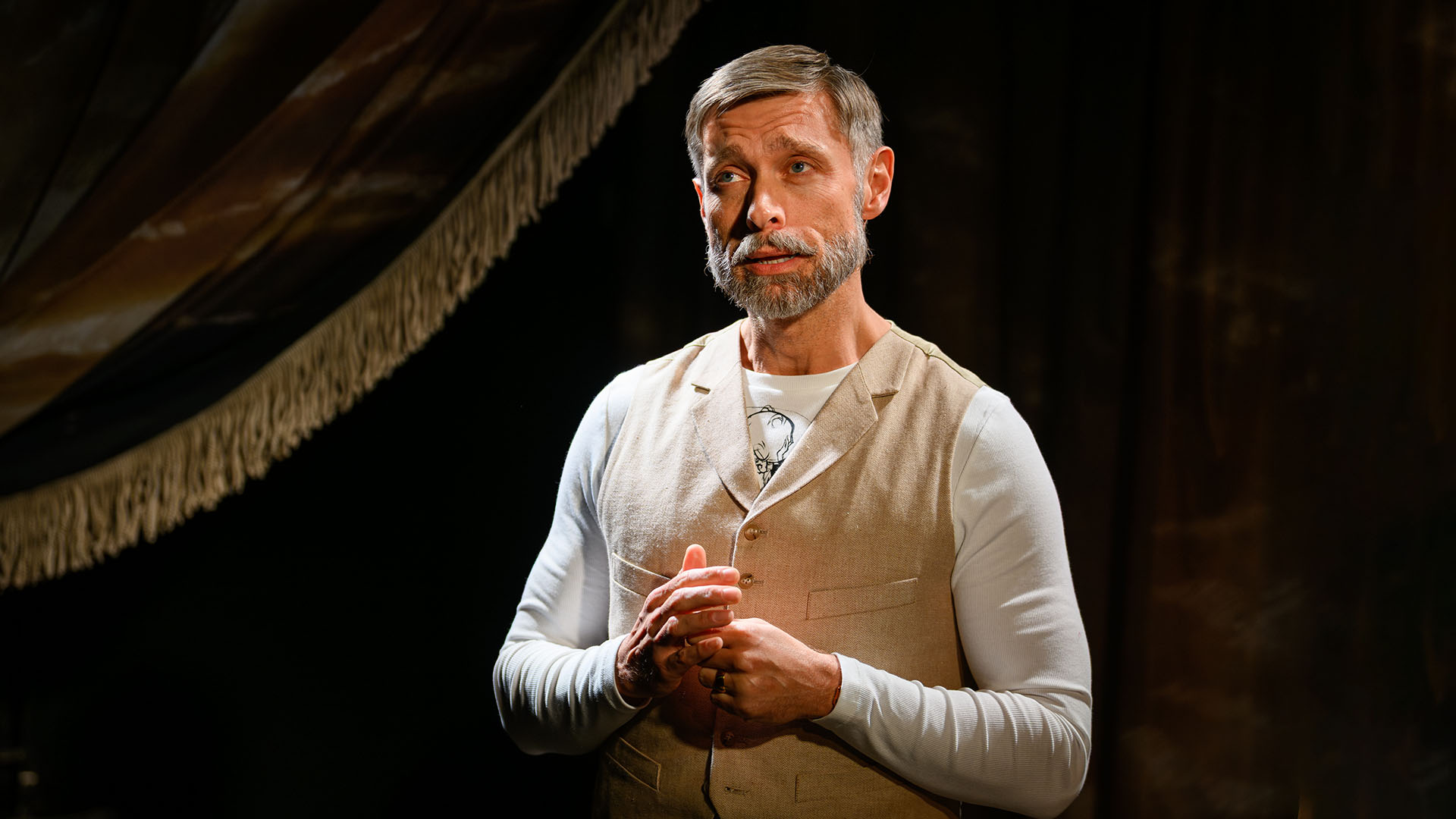
.svg)


